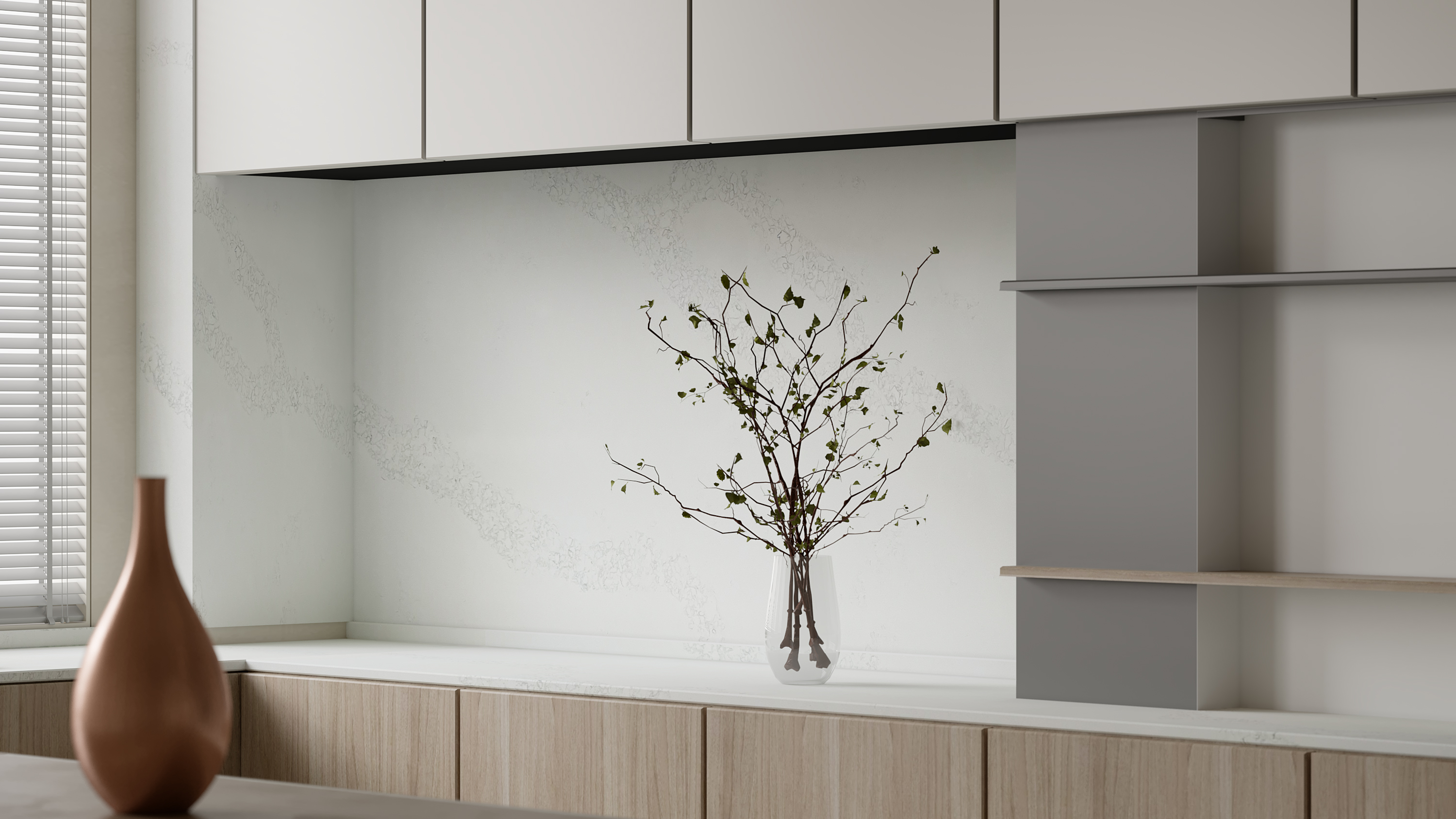Resources Explore our documents to learn more.
Downloads
Care & Maintenance
For a quick daily clean of quartz surfaces, simply wipe down the countertops with a damp cloth or sponge and a mild dish soap solution. Rinse with clean water and dry thoroughly with a soft cloth to prevent water spots. Avoid abrasive cleaners and harsh chemicals, and promptly clean up spills to maintain the surface’s beauty and longevity.
TCE Stone presents a versatile quartz surfacing solution ideal for numerous applications in both residential and commercial settings, including countertops, vanities, wet bars, showers, and more. Crafted from pure, natural quartz—one of the toughest and most abundant minerals on the planet—TCE Stone offers a range of designs that emulate the organic aesthetics of granite, marble, and other quarried stones, while surpassing them in performance due to its exceptional strength and durability. Unlike granite, TCE Stone is nonporous, ensuring it won’t absorb food or liquids. Moreover, it requires no maintenance, providing hassle-free upkeep.
Inspired by the nature, Made for the future.
Frequently Asked Questions

Engineered quartz is great for indoor surfaces like kitchen countertops, bathroom vanities, backsplashes, and shower walls due to its durability and resistance to stains and moisture. However, it’s not suitable for outdoor surfaces (due to UV exposure), extreme heat areas (risk of cracking), flooring in heavy impact areas, or pool surrounds, where chemicals can damage it over time.
TCE Stone provides a 30-year limited warranty from the original date of installation for all TCE Stone quartz products against material failures due to manufacturing defect.
Endorsed by:
National Sanitation Foundation (NSF), United States Green Building Council (USGBC), UL Greenguard, and CORS
TCE branded quartz products have been granted several certifications in North America.
Soak a soft cloth or sponge in a mixture of warm water and soap. Gently but firmly wipe the quartz surfaces using the soaked sponge. Regularly wipe up any spills or splatters to prevent stains from setting in. Use coasters or trivets for hot pans or dishes to avoid heat damage to the quartz surface; Use cutting boards or chopping blocks to protect the countertop from scratches caused by knives or other sharp objects.
TCE Stone quartz countertops are engineered to be highly resistant to stains compared to natural stone surfaces. They are not completely stain-proof, however they are resistant to common household stains such as coffee, tea, wine, and fruit juices. Certain substances like harsh chemicals, oils, and pigmented liquids can potentially cause staining if left on the surface for an extended period.

